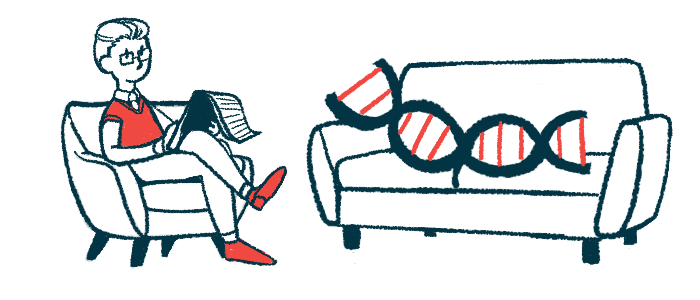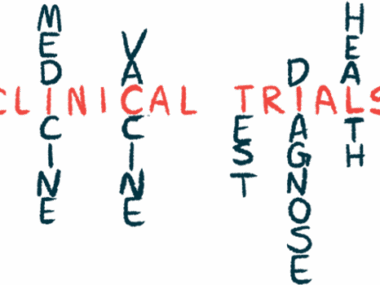Kebilidi linked to clinically meaningful motor gains: Analyses
Half of treated AADC deficiency patients improve after 6 months, study shows
Written by |

Half of aromatic l-amino acid decarboxylase (AADC) deficiency patients given the one-time gene therapy Kebilidi (eladocagene exuparvovec) exhibited clinically meaningful improvements in motor function after six months, and 86% had achieved such gains after 1.5 years, according to analyses of clinical trial data.
Scientists identified a threshold at which improvements in scores on a standardized clinical scale of motor function could be considered clinically meaningful by correlating them with the achievement of definitive motor milestones. Improvements in motor function were also correlated with gains in cognitive and language domains over time.
“Findings from the current study suggest that for patients with [AADC deficiency], treatment with [Kebilidi] leads to significant improvements in motor and cognitive function,” the researchers wrote.
The study, “Clinically meaningful improvements after gene therapy for aromatic L-amino acid decarboxylase deficiency (AADCd) in the Peabody Developmental Motor Scale, Second Edition (PDMS-2) and correlation with Bayley-III scores and motor milestones,” was published in the Orphanet Journal of Rare Diseases. It was funded in part by PTC Therapeutics, which markets Kebilidi, and some study authors are affiliated with the company.
AADC deficiency is caused by mutations in the DDC gene that ultimately lead to a lack of important brain signaling chemicals (neurotransmitters). Patients experience a wide range of symptoms, including movement disorders, cognitive issues, and developmental delays.
Therapy provides healthy version of gene
Kebilidi is a one-time gene therapy designed to provide patients with a healthy version of the DDC gene, allowing the body to produce the neurotransmitters that are lacking. It’s delivered directly into the brain via a surgical procedure.
The U.S. Food and Drug Administration (FDA) approved Kebilidi to treat children and adults with AADC deficiency. It’s also approved in the U.K. and European Union, under the brand name Upstaza, for patients 18 months and older.
Clinical trial data have demonstrated that the gene therapy is well tolerated and leads to continuous improvements in motor and cognitive development over time.
In the recent study, the scientists performed new analyses of clinical trial data to further explore the long-term benefits of Kebilidi and to better establish whether these gains could be considered clinically meaningful. They used data from 30 AADC deficiency patients who participated in any of three open-label clinical trials up to a cut-off date of July 2022, including a Phase 1/2 clinical trial (NCT01395641), a Phase 2b trial (NCT02926066), and a compassionate use study called AADC-1601.
Participants were at least two years old or had a head circumference big enough to perform the surgical procedure. All received a single dose of the gene therapy.
The total Peabody Developmental Motor Scales-Second Edition (PDMS-2) was used to assess motor skills, where higher scores reflect better motor development.
Earlier trial analyses showed that total PDMS-2 scores significantly increased in the five years after patients received the gene therapy. The scientists aimed to identify what changes in PDMS-2 performance might be considered clinically meaningful.
They did so by correlating changes in PDMS-2 scores over time with the achievement of definitive motor milestones, such as full head control, sitting unassisted, standing with support, and walking with assistance. Regulatory bodies consider such motor milestones to be clinically meaningful trial endpoints, the scientists noted.
By anchoring PDMS-2 scores to motor milestone achievements, the scientists ultimately determined that a PDMS-2 total score increase of 40 points could be considered a clinically meaningful motor improvement, which they called the meaningful score difference (MSD).
Using that value, it was estimated that half of patients given the gene therapy in the clinical trials had achieved a meaningful improvement after six months, and 86% had achieved it after 1.5 years.
At 1.5 years, 71% of patients had achieved head control and 40% were sitting unassisted.
Changes in PDMS-2 scores over time were also significantly correlated with changes in scores on cognitive and communication domains of the Bayley Scales of Infant and Toddler Development – Third Edition, a measure of developmental status. These relationships strengthened over time.
These associations, “suggest that … motor function improvements measured with PDMS-2 may be associated with improvements in other [non-motor] domains,” the researchers wrote.
The scientists said that establishing an MSD threshold for PDMS-2 performance, “allows for a better understanding of the clinical relevance of changes observed” and that the changes “highlight the clinically relevant benefits of [Kebilidi] for patients.”
Beyond clinical trials, the MSD could also be used to monitor AADC progression or to help determine the cost-effectiveness of new therapies, the researchers said.






